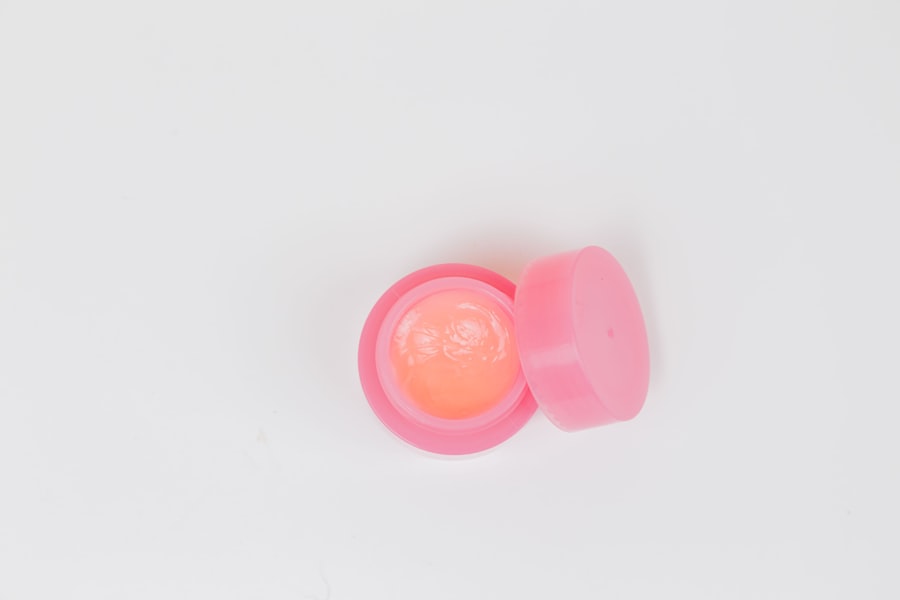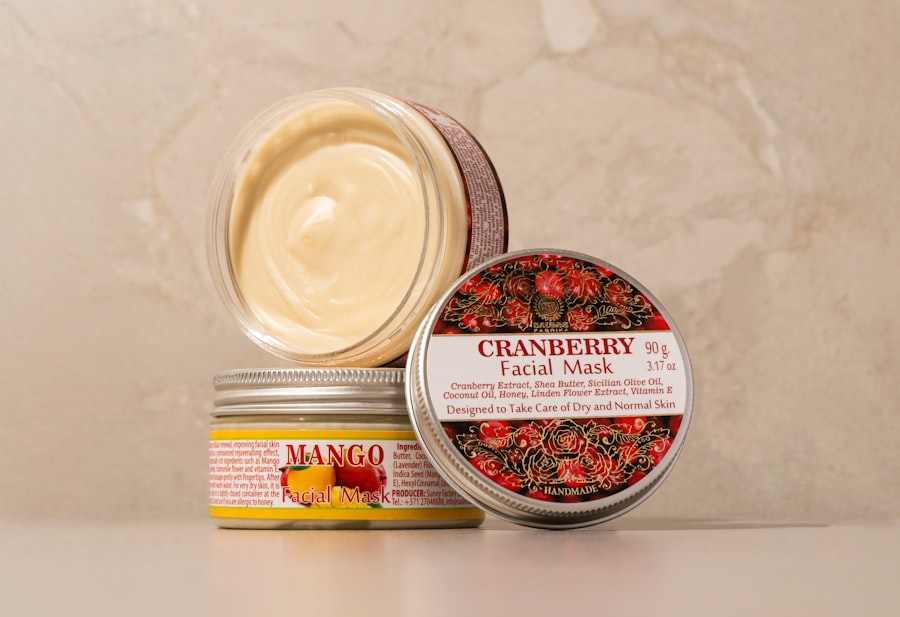After undergoing laser hair removal on your face, it’s essential to grasp what happens to your skin during the recovery phase. The procedure itself targets hair follicles with concentrated light, effectively disabling their ability to grow hair. However, this process can leave your skin feeling sensitive and vulnerable.
You may notice some redness, swelling, or even slight discomfort in the treated areas. These reactions are normal and typically subside within a few hours to a couple of days. Understanding these effects can help you manage your expectations and prepare for the aftercare that follows.
Your skin’s response to laser treatment is influenced by various factors, including your skin type, the laser technology used, and the area treated. For instance, facial skin is generally more delicate than skin on other parts of your body, which means it may react more intensely. It’s crucial to be aware of these nuances so you can take appropriate steps to care for your skin post-treatment.
By recognizing the signs of healing and knowing what to expect, you can better navigate the recovery process and ensure optimal results from your laser hair removal.
Key Takeaways
- Post-laser hair removal on the face may cause redness, swelling, and sensitivity, which are normal and temporary reactions.
- Proper aftercare for the face is crucial to ensure the best results and minimize potential side effects such as hyperpigmentation or scarring.
- To soothe and hydrate the skin after laser hair removal, consider using gentle, non-irritating products such as aloe vera gel or hyaluronic acid-based moisturizers.
- Sun protection is essential after laser hair removal, and it is recommended to use a broad-spectrum SPF of at least 30 on the face to prevent sun damage and hyperpigmentation.
- Avoid makeup and skincare products that contain harsh ingredients such as retinoids, exfoliating acids, or fragrances, as they may irritate the skin post-laser treatment.
- To manage redness or inflammation on the face, apply cold compresses, avoid hot showers, and consider using over-the-counter anti-inflammatory creams recommended by a dermatologist.
- Long-term maintenance and skincare routine for the face after laser hair removal may include gentle cleansing, moisturizing, and regular exfoliation to prevent ingrown hairs.
- Consulting with a dermatologist is crucial for personalized face care tips after laser hair removal, as they can provide tailored recommendations based on individual skin type and concerns.
Importance of proper aftercare for the face
Proper aftercare is vital for ensuring that your skin heals effectively and that you achieve the best possible results from your laser hair removal treatment. Aftercare not only helps minimize discomfort but also reduces the risk of complications such as hyperpigmentation or infection. Your skin has just undergone a significant procedure, and it needs time and care to recover fully.
By prioritizing aftercare, you can enhance the effectiveness of the treatment and maintain a smooth, hair-free complexion. Moreover, neglecting aftercare can lead to adverse effects that may compromise the results of your treatment. For example, if you expose your skin to harsh chemicals or excessive sun exposure immediately after the procedure, you could experience prolonged redness or irritation.
This could ultimately hinder the healing process and affect your overall satisfaction with the results. Therefore, understanding the importance of proper aftercare is crucial for anyone considering or having undergone laser hair removal on their face.
Tips for soothing and hydrating the skin after laser hair removal

To soothe and hydrate your skin after laser hair removal, start by applying a gentle, fragrance-free moisturizer. Look for products that contain calming ingredients like aloe vera or chamomile, which can help reduce inflammation and provide relief from any discomfort you may be experiencing. Applying a moisturizer not only hydrates your skin but also creates a protective barrier that can aid in the healing process.
Make it a habit to reapply moisturizer several times a day, especially if you notice any dryness or tightness. In addition to moisturizers, consider using cold compresses to alleviate any swelling or redness. Simply wrap ice cubes in a clean cloth and gently press it against the treated areas for short intervals.
This can provide immediate relief and help calm irritated skin. Remember to avoid using ice directly on your skin, as this can cause further irritation. By incorporating these soothing techniques into your post-treatment routine, you can promote faster healing and enhance your overall comfort.
Sun protection and SPF recommendations for the face
| SPF Level | UVB Protection | Recommended Usage |
|---|---|---|
| SPF 15 | 93% protection | Everyday use |
| SPF 30 | 97% protection | Extended outdoor activity |
| SPF 50 | 98% protection | Intense or prolonged sun exposure |
Sun protection is paramount after laser hair removal, especially on your face, where skin is particularly sensitive. After treatment, your skin may be more susceptible to sun damage, which can lead to complications such as hyperpigmentation or prolonged redness. To safeguard your skin, it’s essential to apply a broad-spectrum sunscreen with an SPF of at least 30 every day, even if it’s cloudy outside.
This will help shield your skin from harmful UV rays that can exacerbate any post-treatment sensitivity. In addition to daily sunscreen application, consider wearing protective clothing or accessories when outdoors. A wide-brimmed hat can provide extra coverage for your face while sunglasses can protect your eyes from glare and UV exposure.
If you plan to be outside for extended periods, reapply sunscreen every two hours or immediately after swimming or sweating. By taking these precautions seriously, you can significantly reduce the risk of sun-related complications and ensure that your skin heals beautifully after laser hair removal.
Avoiding makeup and skincare products that may irritate the skin
In the days following your laser hair removal treatment, it’s wise to avoid makeup and certain skincare products that could irritate your sensitive skin. Heavy foundations or products containing fragrances, alcohol, or harsh chemicals can exacerbate redness and inflammation. Instead of applying makeup right away, allow your skin some time to breathe and recover naturally.
This will not only help prevent irritation but also allow you to better assess how your skin is healing. When you do decide to reintroduce makeup into your routine, opt for mineral-based products that are less likely to clog pores or cause breakouts. Additionally, consider using a gentle cleanser that won’t strip your skin of its natural moisture barrier.
How to manage any redness or inflammation on the face

Managing redness or inflammation after laser hair removal is crucial for ensuring a smooth recovery. If you notice persistent redness or swelling, applying a cool compress can provide immediate relief. Additionally, over-the-counter hydrocortisone cream may help reduce inflammation; however, it’s best to consult with your dermatologist before using any topical treatments.
They can recommend appropriate products tailored to your specific needs and skin type. Another effective way to manage redness is by incorporating calming ingredients into your skincare routine. Look for serums or creams containing niacinamide or green tea extract, both known for their anti-inflammatory properties.
These ingredients can help soothe irritated skin while promoting healing. Remember to be patient; while some redness is normal after treatment, it should gradually diminish over time as your skin heals.
Long-term maintenance and skincare routine for the face after laser hair removal
Establishing a long-term skincare routine is essential for maintaining the results of your laser hair removal treatment on your face. After your skin has fully healed, consider incorporating gentle exfoliation into your regimen once or twice a week. This will help remove dead skin cells and promote cell turnover without irritating sensitive areas.
Look for exfoliants that are suitable for post-laser care—those with mild acids like lactic acid or enzymes are often effective without being too harsh. Additionally, continue using sunscreen daily as part of your long-term maintenance plan. Protecting your skin from UV damage will not only preserve the results of your laser hair removal but also contribute to overall skin health.
Hydration should remain a priority as well; consider using serums rich in hyaluronic acid to keep your skin plump and moisturized over time. By committing to this routine, you’ll be able to enjoy smooth, hair-free skin for years to come.
Consulting with a dermatologist for personalized face care tips after laser hair removal
Finally, consulting with a dermatologist is an invaluable step in ensuring optimal care for your face after laser hair removal. A professional can provide personalized recommendations based on your unique skin type and concerns. They may suggest specific products or treatments that align with your skincare goals while addressing any issues you may encounter during recovery.
Regular follow-up appointments with your dermatologist can also help monitor your progress and make necessary adjustments to your skincare routine as needed. They can guide you through any challenges you might face post-treatment and offer solutions tailored specifically for you. By seeking expert advice, you’ll be better equipped to navigate the complexities of post-laser care and achieve the best possible results from your treatment journey.
If you’re looking for more information on how to take care of your face after laser hair removal, be sure to check out the blog section of com/’>In Laser Hair Removal website.
They offer a variety of articles and tips on post-treatment care to ensure your skin stays healthy and smooth.
FAQs
What is laser hair removal?
Laser hair removal is a cosmetic procedure that uses a concentrated beam of light (laser) to remove unwanted hair. The laser targets the pigment in the hair follicles, damaging them and inhibiting future hair growth.
How to take care of the face after laser hair removal?
After laser hair removal on the face, it is important to keep the treated area clean and moisturized. Avoid sun exposure and use sunscreen to protect the skin. It is also important to avoid picking or scratching the treated area to prevent infection and scarring.
Can I wear makeup after laser hair removal on the face?
It is generally recommended to avoid wearing makeup for the first 24-48 hours after laser hair removal on the face to allow the skin to heal. After this initial period, it is important to use gentle, non-irritating makeup and to cleanse the skin thoroughly at the end of the day.
How long does it take for the skin to heal after laser hair removal on the face?
The healing time after laser hair removal on the face can vary depending on the individual and the intensity of the treatment. In general, the skin may be red and sensitive for a few days to a week after the procedure. It is important to follow post-treatment care instructions provided by the practitioner.





